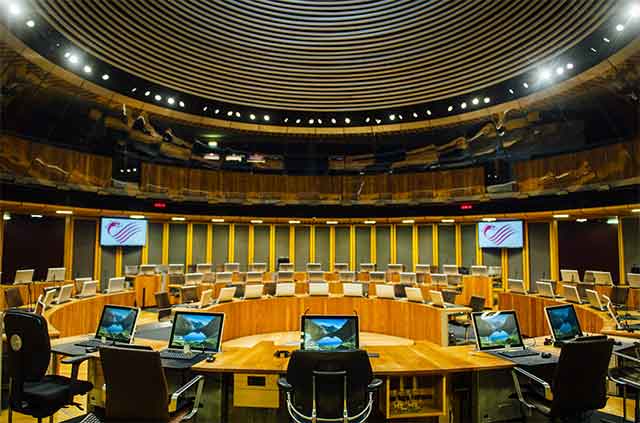Nearly half of Senedd staff are suffering significant stress, with a “worrying” workload fuelled by the Welsh Parliament’s expansion weighing on their well-being, a committee has heard.
Manon Antoniazzi, the Senedd’s chief executive, told the public accounts committee that 47% of staff are suffering from stress – a statistic that has proven “stubborn to shift”.
The pressure comes as the parliament prepares to expand from 60 to 96 politicians after May’s election, a change requiring an overhaul of buildings, budgets and processes.
Ms Antoniazzi said the Senedd commission, which runs the parliament’s support services, has developed a wellness strategy and targeted support for services under strain.
While the latest figure marks a slight improvement, she told the committee officials are working with managers to ensure factors affecting well-being are addressed promptly.
‘£41k pay-off’
She said overall staff sickness has decreased significantly, from 8.6 days for each employee last year to 6.4 now, comparing favourably with the wider civil service average of 8.1 days.
But Ms Antoniazzi recognised a rise in absences due to mental health in the staff survey, attributing this largely to personal reasons rather than work-related stress.
Earlier in the evidence session on October 2, the committee questioned a £41,830 payment to ex-deputy chief executive Siwan Davies who left the £150,000-a-year post in January.
The £41,830 was an “extra-contractual” payment approved by the commission as part of a £71,320 package relating to Ms Davies’ departure – with the rest related to pay in lieu of notice and accrued annual leave, according to 2024/25 accounts.
Ms Antoniazzi assured the committee the payment was fully scrutinised by Audit Wales which was “satisfied appropriate governance steps were taken”.
‘Pay gap’
She told Senedd members: “All the circumstances were disclosed to Audit Wales and they looked at all the steps and gave that assurance to me, which I can pass on to you.”
The scrutiny of executive pay came as the Senedd revealed significant pay gaps elsewhere in its annual diversity and pay gap report.
While the median gender gap was 0%, meaning men and women are paid equally, the median pay for ethnic minority staff was 20% lower than for white staff.
The gap, which was down from 26%, is not due to unequal pay for the same job but a lack of diversity in higher-paid roles – with ethnic minority staff mainly employed on lower bands.
The meeting heard the number of applications from ethnic minorities has increased sharply to 20% of all applicants but this has not translated into job offers which have dropped to 7%.
‘Red alert’
Ms Antoniazzi recognised the need to monitor conversion rates, from application to offer, saying the commission is reviewing recruitment processes to identify and remove barriers.
Beyond the staffing and pay challenges, officials also detailed the top strategic risks facing the Welsh Parliament – effectively the commission’s “red alert” list.
Ed Williams, who is the commission’s director of resources, pointed to cyber-security, data protection and the Senedd expansion programme.
The annual report describes cyber-security as one of the Senedd’s most significant risks, which is subject to “constant monitoring” due to its evolving nature.
Delivering Senedd reform was also flagged amid concerns about the “capacity and capability of the commission to deliver against growing and changing demands”.

